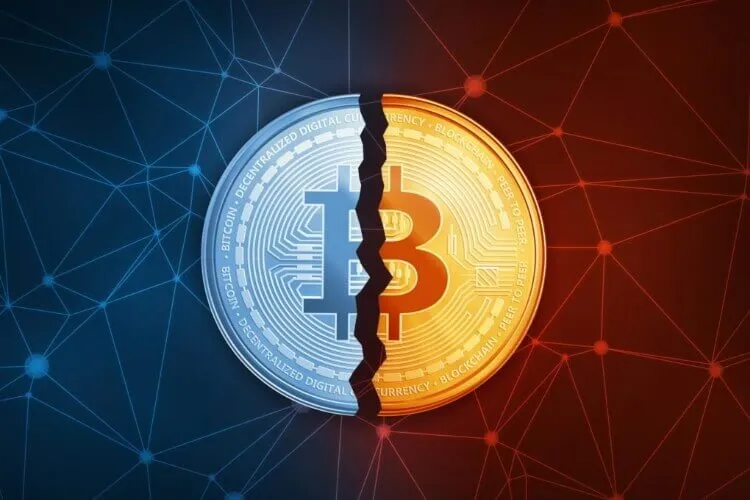Bitcoin operates on a decentralized network powered by blockchain technology. Unlike traditional fiat currencies that are controlled by central authorities like governments or banks, Bitcoin’s issuance and supply are governed by code.
What is Bitcoin Halving?
Bitcoin operates on a decentralized network powered by blockchain technology. Unlike traditional fiat currencies that are controlled by central authorities like governments or banks, Bitcoin’s issuance and supply are governed by code.
Bitcoin halving is a built-in feature of the Bitcoin protocol designed to control the supply of new bitcoins entering circulation. Specifically, it refers to the halving of the block reward that miners receive for validating transactions and adding them to the blockchain. When Bitcoin was first created by Satoshi Nakamoto in 2009, the block reward was set at 50 bitcoins per block. However, approximately every four years, or after every 210,000 blocks mined, the block reward is reduced by half.
The most recent Bitcoin halving occurred in May 2020, reducing the block reward from 12.5 bitcoins to 6.25 bitcoins per block. This process will continue approximately every four years until the maximum supply of 21 million bitcoins is reached, which is expected to happen around the year 2140.
Why is Bitcoin Halving Important?
Supply and Demand Dynamics: Bitcoin halving is akin to a digital equivalent of a gold mining event where the supply of new gold is reduced. With the reduction in the rate of new Bitcoin issuance, the supply of bitcoins entering the market decreases. If demand remains constant or increases, basic economic principles suggest that the price of Bitcoin may rise due to reduced supply.
Scarcity and Store of Value: Bitcoin is often referred to as “digital gold” due to its scarcity and store of value properties. The controlled supply mechanism enforced by halving reinforces Bitcoin’s scarcity, making it a deflationary asset. This characteristic contrasts with fiat currencies, which can be printed at will by central banks, potentially leading to inflation.
Market Sentiment and Speculation: Bitcoin halving events garner significant attention from investors, traders, and the media. Anticipation of the event often leads to increased speculation and trading activity in the months leading up to it. This heightened interest can impact market sentiment and contribute to price volatility.
Historical Price Trends: Historical data suggests that Bitcoin halving events have been followed by significant price increases in the months and years that follow. While past performance is not indicative of future results, many investors view halving events as bullish catalysts for Bitcoin’s price.
Here’s what experts think about Bitcoin halving
Rajagopal Menon, Vice President, WazirX
As the Bitcoin halving approaches in mid-April, we are observing an Economics 101 lesson where reduced supply and sustained demand traditionally propel the price higher.
The halving event cuts the daily reward for mining Bitcoin in half (450). This effectively slows the rate at which new Bitcoins are created and released into circulation. This mechanism, by design, introduces a supply squeeze on an asset already known for its finite supply, setting a stage where demand remaining constant or increasing, could significantly push prices upward.
Edul Patel, CEO of Mudrex
Currently, Bitcoin sits at $52,000, a milestone not seen since 2021. The excitement and demand around the approaching halving event are growing. We might likely see a temporary dip before Bitcoin surpasses the $60,000 mark before the halving.
Parth Chaturvedi, Investments Lead, CoinSwitch Ventures
While history may not repeat itself, it certainly rhymes. Past Bitcoin ‘halving events’, have ushered in a bull run in prices, due to this overnight reduction in supply. However, this halving iteration is different as the ‘supply shock’ will be coinciding with a massive surge in institutional demand driven by spot BTC ETFs.
Blackrock’s offering is fast approaching $5bn in AUM while Fidelity’s is close to $4bn, with the overall accumulation of over 1% of BTC supply already done in less than a month since launch. These are historic inflow numbers and are showing no signs of slowing down as more portfolios will start passively allocating in BTC to achieve higher risk-adjusted returns.
(Disclaimer: Recommendations, suggestions, views, and opinions given by the experts are their own. These do not represent the views of The Economic Times)
Source: The Economic Times






![Swiggy IPO [2024]: Food-delivery major secures Shareholder for potential $1.25 billion public offering](https://u9m.org/wp-content/uploads/2024/04/swiggy-ipo-2024-300x167.jpg)

![The World’s Largest Corporate Holders of Bitcoin, List [Exposed]](https://u9m.org/wp-content/uploads/2024/03/who-owns-the-most-bitcoins-holder-300x200.jpg)





![The World’s Largest Corporate Holders of Bitcoin, List [Exposed]](https://u9m.org/wp-content/uploads/2024/03/who-owns-the-most-bitcoins-holder.jpg)







![Swiggy IPO [2024]: Food-delivery major secures Shareholder for potential $1.25 billion public offering](https://u9m.org/wp-content/uploads/2024/04/swiggy-ipo-2024-768x428.jpg)
+ There are no comments
Add yours